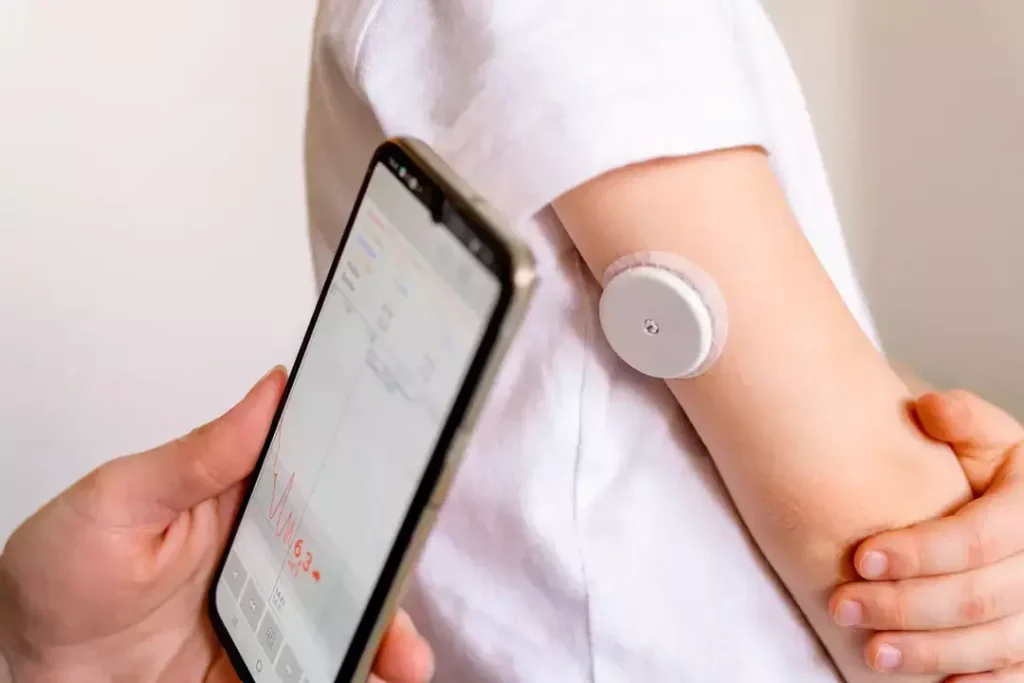
Title: Glucose Tracking Had Limited Impact on Weight: Study
In the ongoing quest to tackle weight loss and manage type 2 diabetes, researchers have been exploring the potential benefits of glucose tracking. A recent study published in Obesity Research & Clinical Practice has shed new light on the topic, revealing that intermittently scanned glucose monitors did not lead to significant weight loss over a 24-week period in overweight individuals with pre-diabetes or mild type 2 diabetes. However, the study also found that users became more aware of their glucose patterns and made better food choices, suggesting behavioral benefits even without major weight changes.
The study, which was conducted by a team of researchers from the University of Surrey and the University of Cambridge, recruited 160 participants with pre-diabetes or mild type 2 diabetes. Participants were randomly assigned to either a glucose monitoring group or a control group. The glucose monitoring group used intermittently scanned glucose monitors, which provided readings at random intervals, while the control group did not use glucose monitors.
Over the course of 24 weeks, participants in both groups attended regular consultations with healthcare professionals to discuss their progress and receive guidance on healthy eating and exercise. The researchers measured participants’ weight, body mass index (BMI), and glucose levels at the beginning and end of the study.
The results showed that, overall, there was no significant difference in weight loss between the glucose monitoring group and the control group. However, participants in the glucose monitoring group did experience a greater reduction in their average daily glucose levels compared to the control group.
But what about the behavioral benefits? Researchers found that participants in the glucose monitoring group reported making healthier food choices and being more mindful of their glucose levels. This suggests that using glucose monitors may have had a positive impact on participants’ behavior, even if it didn’t lead to significant weight loss.
So, what does this study mean for individuals with pre-diabetes or mild type 2 diabetes? The results suggest that glucose tracking alone may not be enough to lead to significant weight loss. However, using glucose monitors can still be a valuable tool for individuals who want to better understand their glucose levels and make healthier lifestyle choices.
In an interview with The PFC Club, Dr. Emma Wilmot, the study’s lead author, explained, “While we didn’t see a significant impact on weight loss, our study highlights the importance of understanding glucose patterns and making behavioral changes. By using glucose monitors, individuals can gain a better understanding of how their diet and lifestyle affect their glucose levels, which can ultimately lead to better health outcomes.”
The study’s findings also have implications for the development of glucose monitoring technology. As we move towards more advanced glucose monitoring systems, it’s clear that we need to focus on creating devices that not only provide accurate glucose readings but also encourage healthy behavior.
In conclusion, the study’s results are a reminder that weight loss is complex and influenced by a multitude of factors. While glucose tracking may not be a magic bullet for weight loss, it can still be a valuable tool for individuals who want to take control of their health.
News Source:
https://thepfc.club/blogs/news/can-glucose-monitoring-help-with-weight-loss






